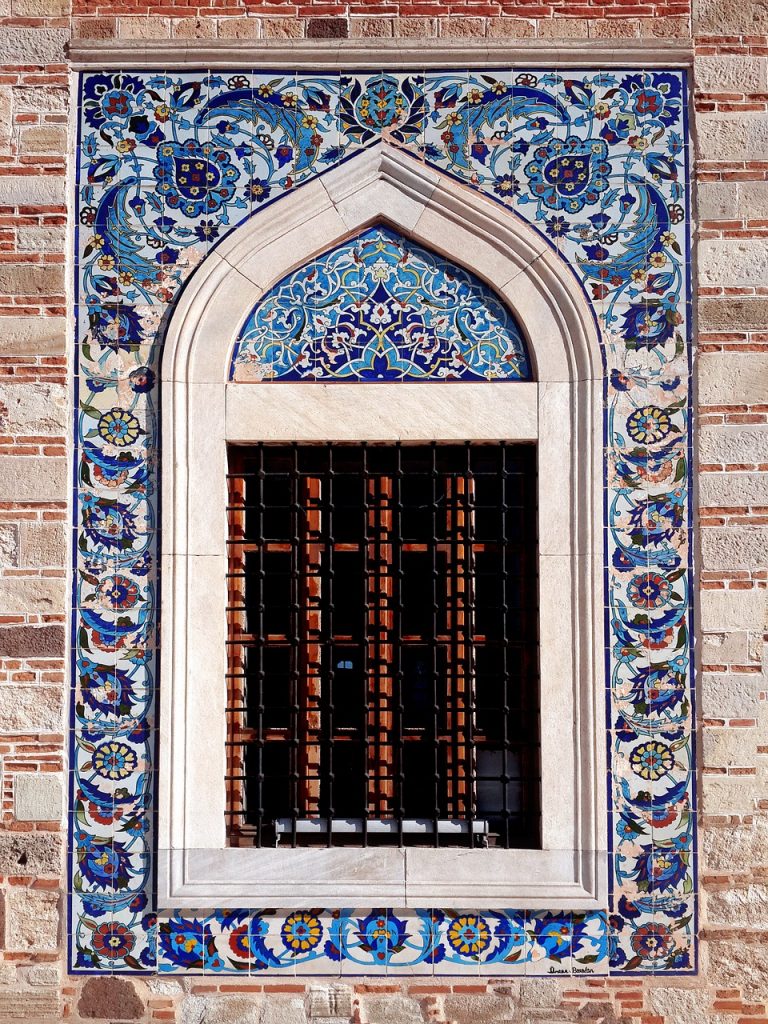
There is something special about beauty, as has been recognized by philosophers in the recent centuries. If someone says the above piece of architecture is ugly, I would judge them either liars or somehow morally corrupt.
When we appreciate beauty, we feel morally uplifted. This is very strange. Why should appreciating some design have any relationship with how I feel about myself?
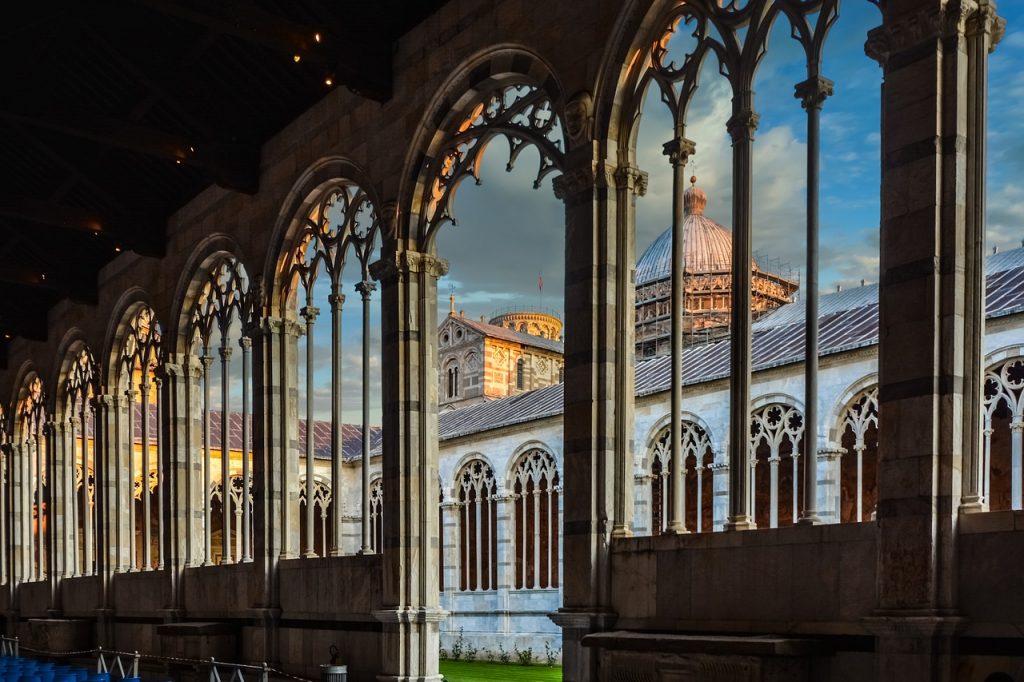
This moral sense of beauty is wonderfully expressed by Roger Scruton in the following passage:
Our need for beauty is not something that we could lack and still be fulfilled as people. It is a need arising from our metaphysical condition, as free individuals, seeking our place in a shared and public world. We can wander through this world, alienated, resentful, full of suspicion and distrust. Or we can find our home here, coming to rest in harmony with others and with ourselves. The experience of beauty guides us along this second path: it tells us that we are at home in the world, that the world is already ordered in our perceptions as a place fit for the lives of beings like us. But—and this is again one of the messages of the early modernists—beings like us become at home in the world only by acknowledging our ‘fallen’ condition, as Eliot acknowledged it in The Waste Land. Hence the experience of beauty also points us beyond this world, to a ‘kingdom of ends’ in which our immortal longings and our desire for perfection are finally answered. As Plato and Kant both saw, therefore, the feeling for beauty is proximate to the religious frame of mind, arising from a humble sense of living with imperfections, while aspiring towards the highest unity with the transcendental.1
My point in this post is to take those thoughts slightly further using my Islamic education, especially al-Ghazali’s simulation theory.
A beautiful Gothic cathedral is a “glitch in the matrix” that creates a state of awe in your mind best expressed in the Quranic verse:
Our Lord, You did not create this in vain, glory to You!2
The state of mind tells us that while from inside the universe things may appear meaningless and random, if we could only look beyond, we would see that they have an architecture and a meaning; history has a director; God exists and watches on.
Appreciating beauty leads to a certain state of the mind. The way that taking a drug creates a certain mental state, appreciating beauty too does something to the mind, creating a special mental state. This state of mind produced feels meaningful because it points beyond the here and now, beyond the confines of space and time, beyond the individual human, in short, beyond the universe itself.
In Islam, we use the word ayah (“a sign that points toward something”) to refer to anything and everything that points to God. It might be possible to explain all beauty using the ayah concept alone (although I am not perfectly sure):
A beautiful thing is anything that points the human mind to the transcendent, i.e. to God.
The similarity between mystical experience and the experience of beauty is well-established. That, according to my theory, is because they are the same thing. The state of awe that beauty forces upon us makes us feel infinitely small, makes us feel connected to something larger than ourselves and larger than the universe, and most importantly, makes us feel judged by an all-seeing subject, an eye that knows us better than anyone else and is ready to accept us.
All that is beautiful makes you experience God’s presence, and all that makes you experience God’s presence is beautiful.
That is where the morally uplifting nature of beauty comes from. When faced with beauty, just as we are casually judging it, we suddenly become aware of an eye that looks back and judges us in return. Something suddenly goes click inside our psyche, we are transported beyond our circumstances, and we are offered a chance to become better than we are. We are on the edge of a great revelation but we do not know what is being offered or who is offering it.

For me appreciating the Quran creates the same psychological experience as appreciating beauty, natural or man-made.
This Quran, in pointing to God, is a universe that speaks. And this universe, in pointing to God, is a silent Quran.3

Many Western hippies have visited Fez, Morocco in their seeking of meaning in life. While Morocco has much beauty to offer, meaning that it helps travelers come face-to-face with the all-seeing subject that looks back at us, judges us and offers us forgiveness as we try to judge beauty, the same experience can be had for much cheaper at home by looking at the architecture of most churches and their surrounding scenery.
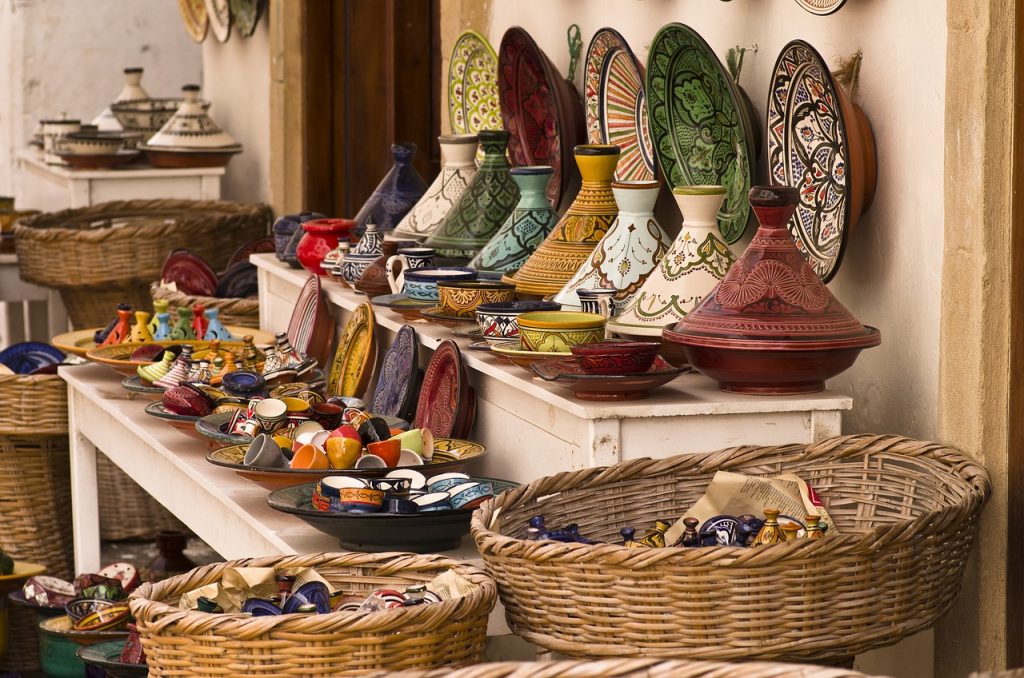
Beautiful art, whether Islamic or Christian, points to God. The experience of beauty, whether in Fez or in the English countryside, is one and the same. Both point to God and make moral demands on us, promising us salvation in return for piety.
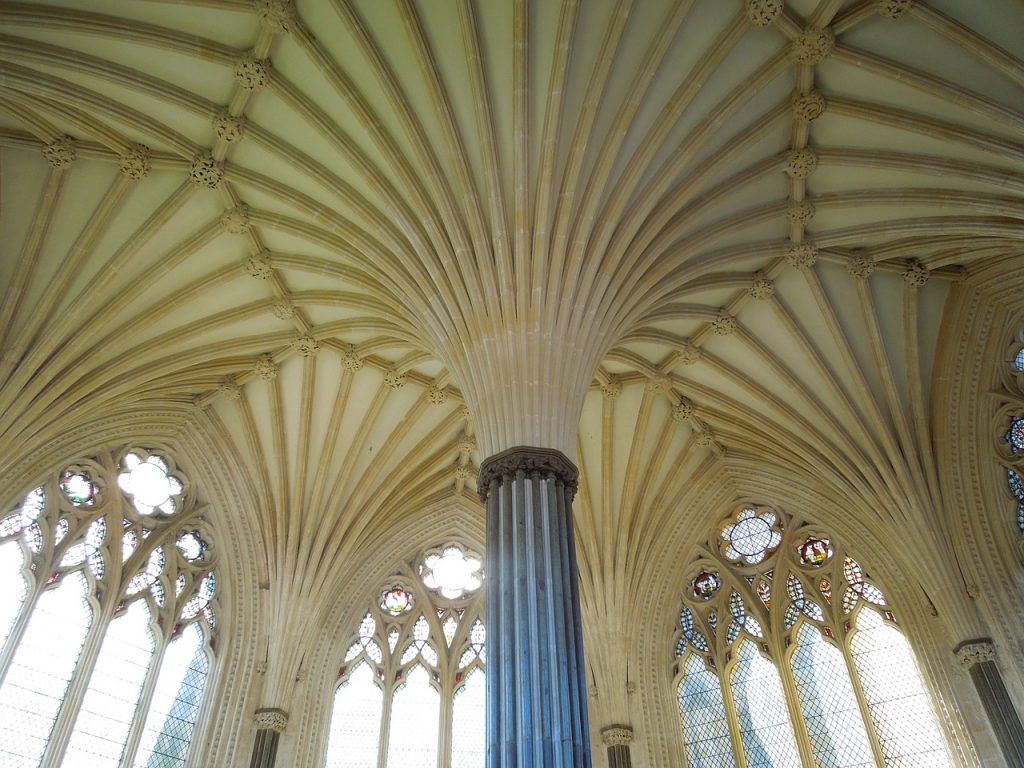
The problem with Fez and Turkey’s many tourist attractions is that beauty is devoid of moral teaching, therefore while a lover of beauty is elevated by it and motivated to seek God, if they do not go through with this seeking (through religion or at least through the effort of direct communion with God without religion), they end up as moral failures who never reach what they seek. They admire God through beauty but are too cowardly to talk to Him face-to-face.
I have met some of these unfortunate seekers who never become finders. The fact that you can experience the moral uplift of beauty means that you are capable of contemplating God’s face and communicating with Him. But there is a next step you have to take, which is to seek moral guidance. You can experience God, but Your God can speak, so why don’t you listen to what He has to say?
Most mysticism ends in narcissism. Rumi’s poetry, Morocco’s beauty and Gothic architecture all lift us up into the stratosphere like a thousand tons of rocket fuel, but if we are content with this experience, if we seek the experience itself without bothering to listen to God, then our mysticism and spirituality becomes self-worship. We appreciate art or chant the name of God and enjoy the uplift that comes with it, but the moment God starts speaking to us we shun Him and run away, as if saying O God, give us the good feeling of being close to You, but do not make demands. You are lovely, beautiful, amazing, but stay where I put you.
The narcissistic mystic does not chase God, he chases the feeling of what it is like to be close to God. The one who chases God is eager to listen to Him, while the narcissistic mystic feels inconvenienced by His voice.
I was delighted to find out that C. S. Lewis’s experience of beauty was very much similar to mine, as described in the following excerpt from his letters:
To me it seems that a great many different emotions are united in the perception of beauty: it may turn out to be not a simple thing but a result of unions. For one thing nearly all beautiful sights are to me chiefly important as reminders of other beautiful sights: without memory it would be a poor affair. The process presumably has a beginning but once going it grows like a snowball. Could it be that joy remembered (‘Which now is sad because it has been sweet’) is a necessary element in Beauty? There is too, I think, a purely sensuous element: that such and such notes or tints (in themselves–not in their combinations) just happen to satisfy our nerves of hearing & sight–as certain foods satisfy those of tastes. This would be rather a condition of beauty, perhaps, than an element in it. One thing is plain, that the statements continually made about Beauty’s being pure contemplation, stirring no impulse, being the antithesis of the practical or energizing side of us, are wrong. On the contrary beauty seems to me to be always an invitation of some sort and usually an invitation to we don’t know what. A wood seen as ‘picturesque’ by a fool (who’d like a frame round it) may be purely contemplated: seen as ‘beautiful’ it seems rather to say ‘come into me’.
Ugliness
If beauty is that which points to God, ugliness is that which points away from Him. Beautiful architecture “traces the contours of God’s face” so to speak, helping us know what it feels like to be near Him even though we cannot see Him. Ugly architecture, on the other hand, often present us with faceless edifices that point to nothing beyond themselves, almost claiming that God does not exist and they are all that there is:
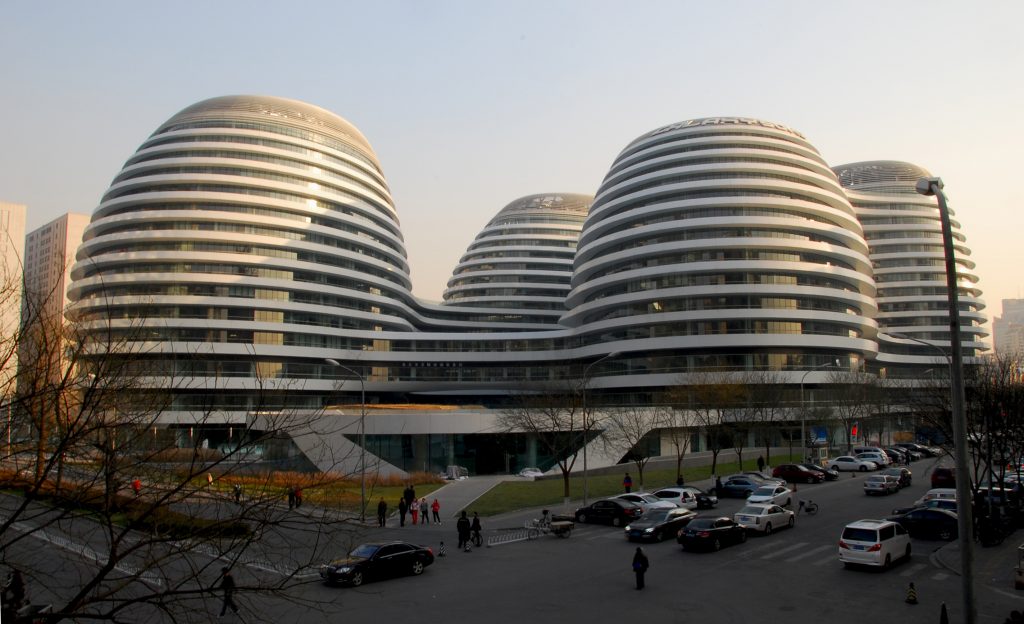
There is nothing to relate to as a human in the above building. It is an alien, impenetrable thing that might be an alien organism capable of wiping humanity out for all that we know. Beautiful things help us come face-to-face with God and offer us salvation. Ugly things offer us nothing and tell us we are not needed. Ugly architecture offers us cruel and vacant faces, telling us life is meaningless and that there is nothing beyond. Like those dismal Soviet apartment blocks, they remind us of the hopelessness and meaninglessness of existence without God. They can be interesting to look at as technological marvels, as the Walt Disney Concert Hall in Los Angeles below, but they are as morally uplifting as a washing machine (although the curves and reflections take out a bit of the inhumanity in it).
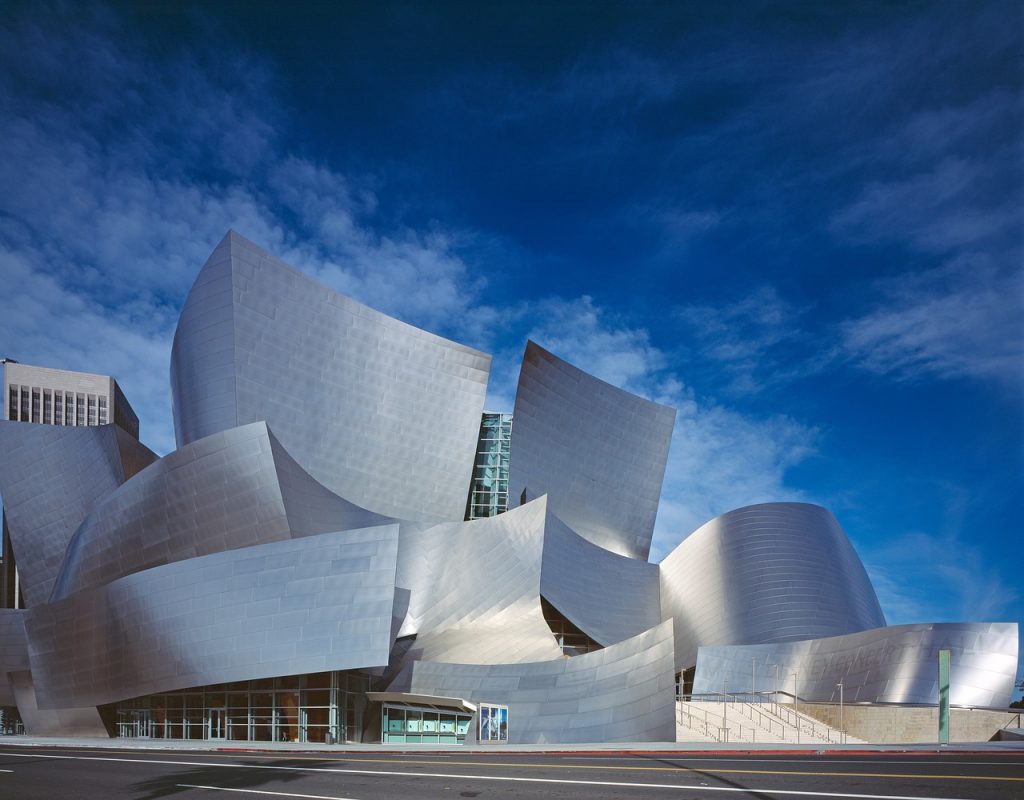
And as a cure for the horror of experiencing looking at the above building, here is something beautiful and humane, a building that seems to whisper to us about God, almost as if it is an angel who points to God and offers us everything we could desire if we choose to be morally upright:
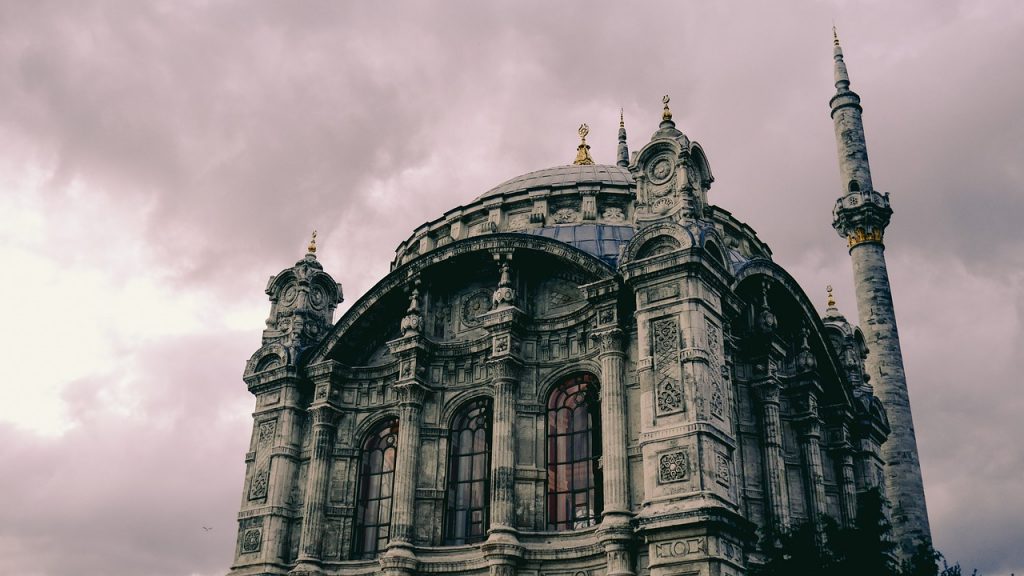
Religious propaganda
An important clarification has to be made here. By saying that beauty is all that points to God and that all that points to God is beautiful, I am not referring to religious propaganda, which is often ugly.
A Muslim-made billboard that quotes a verse of the Quran and talks to Christians about how Islam is better for them is not going to create any mystical experience in the hearts of the Christians who view it, because they know there is a human will behind the billboard that cannot be automatically trusted. The billboard might use a beautiful verse and a beautiful design, but the attitude behind the object makes it fall flat. Propaganda-makers pretend to possess the whole truth and refuse to acknowledge their doubts and their human weaknesses. Propaganda tries to change the course of history, it is an expression of the desire for a group of humans to make another group of humans do their bidding (I am not saying this is always bad, it can be done with good intentions, but the point is that it is not beautiful; it is not morally uplifting).
Unlike propaganda, beauty has no human will behind it and does not claim to be perfect. It does not matter who funded the above building and for what purpose. It stands on its own and humbly points to God, without pompously thinking that it knows what your beliefs should be, what you should do with your life or how history should go. It merely helps you have an experience of God while leaving it up to you to discover the truth on your own.
There is a certain class of religious art that does make truth-claims but that is not propaganda because it is aimed at members of the religious community itself; it does not seek to change them but only to reaffirm their faith and worldview. Such art is experienced by us as beautiful provided that we are members of that community because the attitude behind it no longer matters since we share the same attitude as its creators. It does not pompously claim to know the truth or try to change your way of life. It uses beautiful imagery to re-create mystical experiences you have already had in the past. The unsavory ingredient of attitude and politics is not present, so the artwork can be appreciated for itself.

Above, what might be experienced as a threatening cultural incursion by a Christian if they were to see it hung as a poster on some wall in their city is experienced by a Muslim as an apolitical reminder of many beautiful-mystical things: Ramadan, the peacefulness of small Middle Eastern towns in the desert, the Prophet’s migration to Medina PBUH. For a Muslim it points to God in numerous ways. For a Christian, if they were to see it hung in the wrong place (on a church’s wall!) it would be a direct, political attack on their way of life and independence of conscience. A beautiful thing in the wrong context can send all the wrong messages.